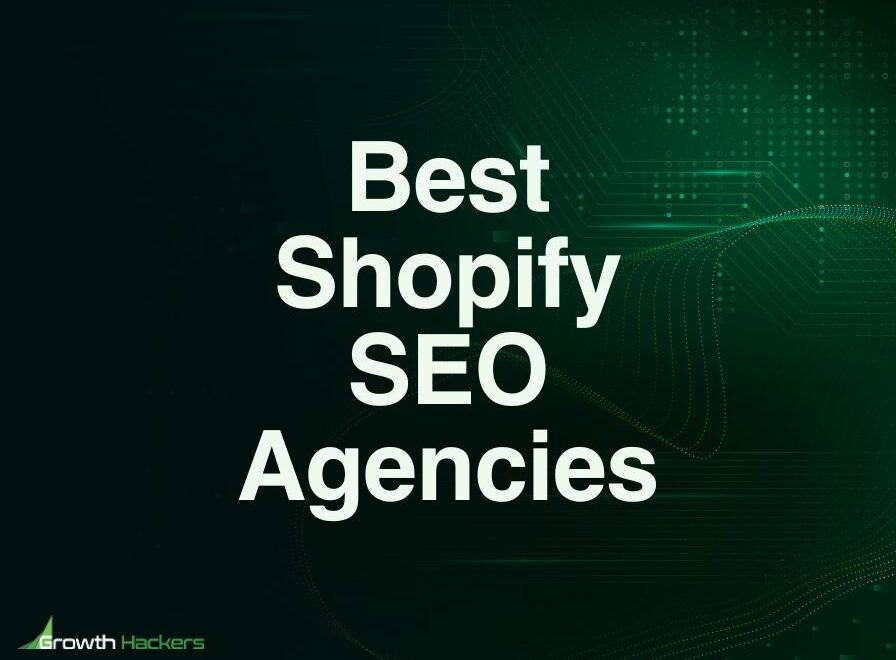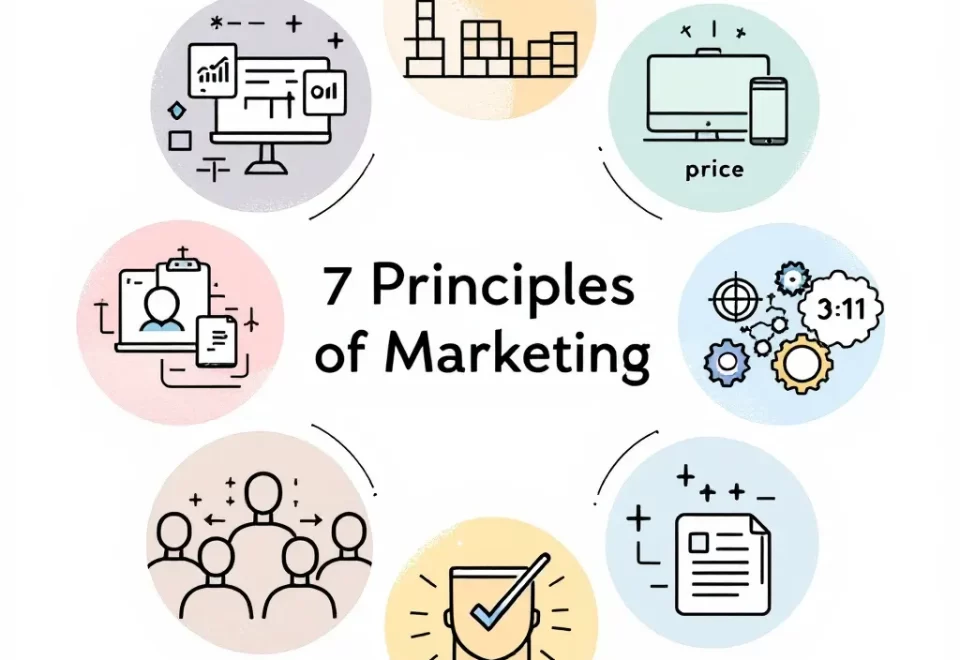In today’s digital world, lifestyle marketing can be an extremely effective strategy to attract consumers to your product or service. You can effectively create a desired brand identity through tailored content showcasing how you and your products/services fit into people’s lifestyles. In this blog post, we’ll share nine proven lifestyle marketing strategies that have helped businesses target customers on an emotional level and drive up engagement. Whether you’re looking to revamp your current approach or try something new and innovative, these strategies will show you how to create meaningful connections with your audience.
What is Lifestyle Marketing?
Lifestyle marketing is a form of marketing that focuses on understanding and relating to consumers’ lifestyles, values, interests, and behaviors. It involves creating content that appeals to customers based on their lifestyle needs and wants. This strategy builds strong customer relationships by providing content that resonates with the target market. By connecting with their customers on a personal level, companies can create content that is unique and emotionally resonant. As lifestyle marketing works to create brand loyalty, it can help businesses build relationships with their customers that last.
Lifestyle marketing can take many forms, from video campaigns to social media posts. By understanding the lifestyle needs of their target audience and creating content tailored to them, companies can reach more people with a message that truly speaks to them. For example, if a company is selling outdoor gear, it might create an Instagram campaign showcasing how its products fit into the lives of adventurers and explorers.
Why is Lifestyle Marketing Beneficial?
Before diving into the nine proven lifestyle marketing strategies, it’s important to understand why this approach benefits businesses.
Establishing Brand Loyalty
Lifestyle marketing is an effective tool for establishing brand loyalty. By presenting your products and services as part of a desired lifestyle, you can create a stronger connection between the consumer’s lifestyle and the product or service. Consumers will be more likely to return if they have become emotionally invested in the idea that your product or service is integral to their chosen lifestyle. The brand value created through lifestyle marketing can help strengthen consumer loyalty, increasing sales and customer retention.
Customers who connect emotionally with your brand are more likely to be devoted and less likely to switch to a competitor’s offerings. Additionally, customers who feel emotionally attached to your brand story and the lifestyle associated with your product or services will gladly spread the word about your brand to their friends and family, creating an organic word-of-mouth marketing channel.
Standing Out from Competitors
In today’s competitive marketplace, it’s essential to stand out. Lifestyle marketing can effectively distinguish yourself and further sell your products or services from the rest of the crowd. Presenting a unique lifestyle associated with your product or service raises awareness and makes it more attractive to potential customers.
Marketers can also use this strategy to target specific customer segments. By a lifestyle that appeals to an audience, you’re more to attract customers who are already interested in the lifestyle associated with your product service. This helps ensure that the people who see your ads are more likely to be interested in purchasing from you. Even when non-lifestyle brands use lifestyle marketing, it can provide an effective competitive advantage in the market.
Reach a Wider Audience
Finally, lifestyle marketing can also be used to reach a wider audience. By targeting customers who are interested in the lifestyle associated with your product or service, you have a greater chance of succeeding in reaching more people. Additionally, this type of targeted marketing is less expensive than other types of advertising and allows for more personal engagement with potential customers. As customer’s lifestyle need to change, companies can also adjust their marketing strategies to continue reaching a wider audience.
Ready to elevate your lifestyle marketing game?
Contact Growth Hackers
9 Proven Strategies for Successful Lifestyle Marketing
Now that we’ve discussed its benefits let’s explore nine proven strategies for succeeding in lifestyle marketing.
1. Understand Your Target Audience
Understanding your target audience before beginning any lifestyle marketing strategy is essential. Researching your customer base and getting to know their wants, needs, and preferences can help you craft an effective message that resonates with them. Start by making a detailed profile of who they are: age, gender, geography, hobbies, interests, etc. Once you have a clear picture of your target, you can use it as the foundation for all your marketing efforts.
As part of this effort, you should keep track of the latest market trends to ensure your strategies remain relevant to the current landscape. Suppose you are selling a product that appeals to young women. You should stay updated on the latest fashion trends and incorporate them into your marketing campaigns.
2. Use Influencers
Influencer marketing has grown in popularity as an effective way of reaching potential customers with lifestyle messages. Companies can partner with influencers representing their ideal customer to discuss their products, services, and lifestyle topics relevant to the business’s target audience. This type of marketing is powerful because it allows brands to reach a much wider audience authentically.
Utilizing influencers who possess a large following on various social media platforms also helps build trust between the brand and its community of potential customers by creating a relationship between them. Influencers act as ambassadors for the company, giving their followers assurance that the product or service being promoted is quality and worth considering. Furthermore, when influencers share content about what your brand offers, it makes it easier for new customers to find out about you.
Companies should look at their existing customer base for inspiration when searching for influencers to partner with. Focus on those who have a large following, are engaged with their audience, and are considered an authority in their industry or the lifestyle space. Utilizing influencers can be a great way to drive sales while gaining more market visibility.
3. Repurpose Content
Repurposing content is an effective way of getting the most out of your existing content while reaching more potential customers with lifestyle messages. Companies can take blog posts, videos, podcasts, and other pieces of content that have already been created and repurpose them into different formats to be shared on various channels like social media or email marketing.
By repurposing content, companies can save time and resources because they don’t have to create new material from scratch whenever they want to share something with their audience. Additionally, it allows them to reach a wider demographic as different pieces of content often appeal to different types of people. For example, if you have a video about a product, you can repurpose it into a blog post or an infographic for those who prefer to read instead.
Finally, content repurposing allows companies to extend the life of their content and keep it relevant over time. By creating different versions of existing material, they can continuously promote themselves without investing in creating something new every time. Repurposing content is a great way to stay top of mind with potential customers and maximize the impact of your existing material.
4. Create Stories
Storytelling is a powerful tool that can be used to engage potential customers and create an emotional connection with them. Companies should strive to tell stories about their products and services and lifestyle topics relevant to their target audience. The power of storytelling when done this way is more likely to resonate with people because it has the potential to evoke emotion. Storytelling can be used in many ways, from blog posts and videos to podcasts and infographics. Companies should also look for opportunities to tell stories on social media, where the storytelling format is often more effective.
Additionally, companies should strive to find creative ways to link their brand with lifestyle content that is relevant and meaningful to their target audience. This type of relationship-building will help increase customer loyalty over time. Ultimately, storytelling can be a powerful tool for companies looking to reach new customers or strengthen relationships with existing ones.
5. Focus on Customer Experience
Customer experience should be at the forefront of all lifestyle marketing strategies. Companies should focus on delivering a positive experience to their customers beyond just purchasing a product. This means providing an easy-to-navigate website, friendly customer service representatives that are knowledgeable and helpful, and quick response times. Additionally, companies should consider providing further value to their customers by offering discounts or loyalty programs that reward repeat purchases.
Companies should also consider ways to personalize the customer experience by tailoring offers and messages to each individual. This can be done through segmentation strategies targeting certain demographics, behaviors, or interests. Companies can also utilize data from past customer interactions to better understand them and deliver more relevant, personalized experiences.
Finally, companies should focus on creating memorable customer experiences that will keep them returning for more. This could include unique activities or events related to the company’s products and services or keeping customers engaged through regular emails or social media posts. Companies can build loyalty and increase their profits by creating an enjoyable customer experience beyond just the product purchase.
6. Utilize Automation
Automation is an important tool for lifestyle marketing strategies. Companies can use automation to perform various tasks, such as creating and sending emails, targeting customers with personalized messages, or managing social media accounts. Automation tools can help streamline processes, save time, and reduce costs. Additionally, these tools provide access to data that can be used to measure the effectiveness of campaigns and make adjustments as needed.
Companies should also look into leveraging machine learning technology in their automation strategies. This type of technology uses algorithms to learn from data and improve over time. For example, machine learning could analyze customer behavior and determine which offers or messages are most effective for conversions. Companies can gain valuable insights and optimize their marketing efforts using automated systems powered by machine learning.
Overall, automation is an effective way to make lifestyle marketing more efficient and cost-effective. With the right tools and strategies, companies can easily automate various aspects of their campaigns and take advantage of data-driven insights to improve their results.
7. Embrace Innovation
Innovation is essential when it comes to both lifestyle brands and marketing strategies. Companies should constantly look for new ways to engage customers and build relationships. This could mean introducing new products or services, developing creative campaigns and content, or launching innovative technologies to enhance the customer experience.
Companies should also consider using emerging technology in their campaigns, such as virtual or augmented reality. These tools can help create immersive experiences that are engaging and memorable for customers. Additionally, companies should take advantage of social media platforms to reach larger audiences and interact with customers in real time. When it comes to innovation, companies should be ahead of the curve and take advantage of every opportunity they can find.
Get ready to start your lifestyle marketing journey and bring your brand to life!
8. Focus on Quality
Quality is always a priority in effective lifestyle marketing. Companies should strive to create campaigns and content that are high-quality, engaging, and relevant to their customers. This means taking the time to research current trends and customer preferences so they can create authentic experiences that will resonate with them.
Companies should also focus on providing high-quality products that are well-designed and of the highest quality. Customers will be more likely to purchase products if they trust the company’s ability to provide excellent products and services. Companies should also use service design principles when creating customer experiences – from initial contact to ongoing engagement – to ensure a positive customer experience.
Finally, companies should strive for transparency throughout their marketing efforts by being open and honest about their practices. Companies can build customer trust and lasting relationships by providing quality content and an overall reliable experience.
9. Analyze and Optimize
Analyzing customer data and campaigns is key to a successful lifestyle brand and marketing. Companies take the time to understand their customers’ behavior and need to optimize their campaigns accordingly. Companies should use analytics tools to track the performance of their campaigns, analyze customer data, and measure how effective they are at engaging customers.
Companies should also look for opportunities to optimize content and create more personalized customer experiences. This could mean testing different messages or visuals or creating A/B tests on various platforms – such as email campaigns – to see which performs better. Companies can also use segmentation techniques to target certain customer groups with specific messages that will be more likely to resonate with them. When lifestyle brands succeed in understanding their customers, they can create more customized and effective campaigns that will ultimately lead to higher conversion rates.
Final Words on Lifestyle Marketing
Lifestyle marketing is an effective way to reach consumers in today’s digital world. Leveraging a combination of targeted strategies can help brands create unique and engaging campaigns that grab the attention of their desired audience. By utilizing these nine proven marketing strategies, companies can better connect with customers emotionally, build brand loyalty, and increase sales. It is important to understand the needs and interests of your customer base so that you can tailor your lifestyle marketing strategies accordingly. With a well-crafted strategy, companies are sure to see positive results.
So, start implementing these strategies today and take your lifestyle marketing to the next level. With a thorough understanding of lifestyle marketing and its various applications, businesses can ensure maximum value from their efforts. Good Luck!
Growth Hackers is an award-winning wellness marketing agency helping businesses from all over the world grow. There is no fluff with Growth Hackers. We help entrepreneurs and business owners upgrade their lifestyle marketing strategy, increase their productivity, generate qualified leads, optimize their conversion rate, gather and analyze data analytics, acquire and retain users and increase sales. We go further than brand awareness and exposure. We make sure that the strategies we implement move the needle so your business grow, strive and succeed. If you too want your business to reach new heights, contact Growth Hackers today so we can discuss about your brand and create a custom growth plan for you. You’re just one click away to skyrocket your business.









1 Comment
This is a well-structured guide, I’m going to implement some of these tactics to refine our digital marketing campaigns. Thank you.